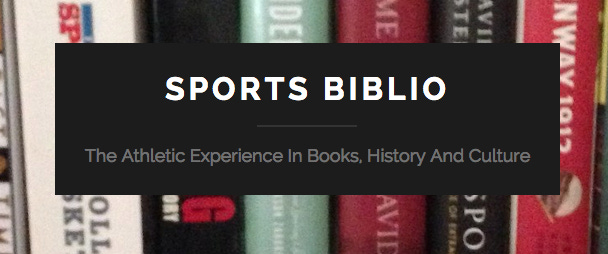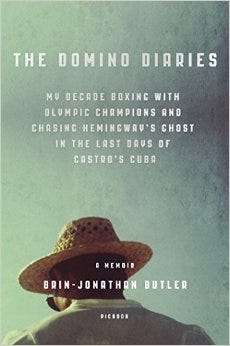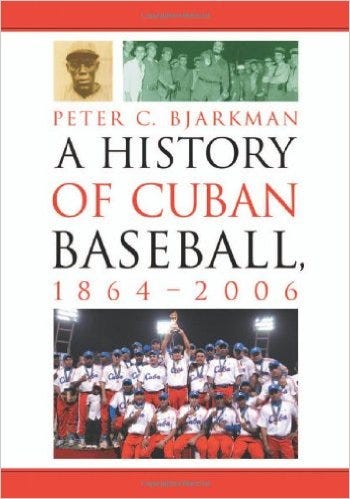Sports Biblio Digest, 11.27.16: Fidel Castro and Cuban Sports

News, Views and Reviews About Sports Books, History and Culture
Also In This Issue: FourFourTwo’s Best Soccer Books; The Grey Cup in Toronto; Auf Wiedersehen, Klinsmann; Remembering Ralph Branca
Welcome to the Sports Biblio Digest, an e-mail newsletter delivered each Sunday. You can subscribe here and search the archives.
This is Digest issue No. 64, published Nov. 27, 2016. The Digest is a companion to the Sports Biblio website.
I’d love to hear what you think about the Digest, and Sports Biblio. Send feedback, suggestions, book recommendations, review copies, newsletter items and interview requests to Wendy Parker at sportsbiblio@gmail.com. You can also follow Sports Biblio on Twitter and hit the “like” button on Facebook.
* * * * * * * *
Fidel Castro’s impact on Cuban sports was among the topics of discussion in the wake of his death Friday at the age of 90, as retrospectives poured in about “The Last Cold Warrior,” and his legacy on his country and global affairs.
Injecting sports into his country’s Communist identity was one of Castro’s initial and enduring actions, affecting far more than his beloved béisbol.

In his 2015 book “The Domino Diaries” (Sports Biblio review here), author Brin-Jonathan Butler wrote:
“Sport wasn’t an opium for those people; their culture was an opium for sport.”
However, the national pride and loyalty Castro received from elite athletes—especially baseball players and Olympic gold medal boxer Teofilo Stevenson—could not withstand the crumbling of the Cuban state after the fall of the Soviet Union.
Butler wrote recently at Roads & Kingdoms about a game between the Tampa Bay Rays and the Cuban national team at the end of President Obama’s quick trip to the island nation:
“There wasn’t an empty seat in the house, yet, in accordance with the Cuban state’s philosophy on sport and cultural events, not a single ticket was sold for money, scalped outside or online. Nobody made a dime.
This was why so many understood the hell it had been for so many Cuban athletes to remain on the island. Anywhere else on earth, they were sweepstakes winners. Yet after they performed before a crowd of Cubans at El Latino or Kid Chocolate arena, they laughed off being nervous about pitching at Yankee Stadium or boxing at Madison Square Garden: No matter what their paydays or television ratings, there was always something profoundly lacking. Even for many back home that celebrated their escape, there was no better place to see them shine than in Havana.”
It’s a bit too soon to speculate on the possibilities of Major League Baseball in Cuba, but The Sporting News jumped the gun anyway;

From Esquire’s September 1996 issue, Gay Talese’s piece on “Ali in Havana” is posted at Longform;
This is quite long, but worth the time: “Fidel Castro and Baseball,” at the Society for American Baseball Research site. Cuban baseball historian and author Peter Bjarkman speculates on how different Cuban history may have been had Castro pursued a baseball career. Bjarkman also is a contributor at the BaseballdeCuba site, which is in Spanish.
A Few Good Reads
The 104th Grey Cup, the championship game of the Canadian Football League, takes place on Sunday in Toronto, which doesn’t seem to be paying much attention, and not just because the game pits the Calgary Stampeders against the Ottawa Redblacks. In Canada’s biggest city, the “Americanization” of sports is being partly blamed for lackluster ticket sales;

The British soccer magazine FourFourTwo has finished its list of “The 50 Best Football Books,” and it’s done in maddening drips, a couple books a page, to make you keep clicking. American readers are also treated to an annoying question about going to the publication’s U.S. site that pops up on every page, even if they keep answering it. I won’t spoil the suspense, and I do think the selections are outstanding, but I absolutely loathe this approach. I understand the challenges publications face trying to make money in the digital age. I just wish they would respect their readers better than this. If you care to slog through the entire list here are links to previous installments, and there is a list of favorite books of top British soccer writers that’s helpfully all on one page;
The longer the NFL season goes, the more unappealing it becomes. At the halfway point, Danny Kelly of The Ringer hands out his noteworthy mediocrity awards, if you will, and somehow the Jacksonville Jaguars have made the list;
U.S. Soccer fired Jürgen Klinsmann this week as men's national team coach and replaced him with Bruce Arena, who coached the Americans in the 2002 and 2006 World Cups. At ESPNFC, Gabrielle Marcotti writes about what the federation would be wise to consider when casting around for a longer-term solution. The U.S. Sport History blog conducted a roundtable assessing Klinsmann’s impact on American soccer.

Passings
Ralph Branca, 90, was the Brooklyn Dodgers pitcher who gave up the 1951 National League pennant-winning “The Shot Heard Round the World” to Bobby Thomson, and was forever known for that one bad pitch. Phil Mushnick writes that “the man I figured would and should be afflicted by natural bitterness having been chosen for unnatural cruelty — the man selected by fate as the symbol of forever national sports infamy” was kind and generous in his post-baseball days. As baseball historian Marty Appel said: “He was just very comfortable being Ralph Branca;”
Peggy Kirk Bell, 95, was a standout amateur golfer before turning professional in 1950, the year the Ladies Professional Golf Association was formed. Players like Babe Didrikson Zaharias gave the tour its star material, and while Bell had her own celebrity admirers, she was an utterly devoted pioneer of women’s golf behind the scenes as a teacher and advocate for the sport.


